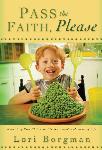With small children being arrested and handcuffed at public schools -- a little girl in Florida and a little boy in Wisconsin -- kindergarten round-ups may be substantially altered.
"Children, this is the craft center where we cut and paste. This is the reading center where we look at books, and this is the holding room where you will stay if you go berserk, your parents refuse to come and we are forced to call the police."
So long naps, snacks and story time. Read them the Miranda in terms a 6-year-old can understand.
It is a tail-wagging-the-dog state of affairs when 45-pound tyrants punch, hit, slap, kick and are able to hold adults as virtual hostages. But why wouldn’t the little darlings be able to do such things? The schools’ hands are tied, which is not wholly unlike being cuffed.
As aggressive as many teachers can get these days is to kneel down and say, "We’re going to put the toys away now. Please pick up the toys. You don’t want to pick up the toys? Well, it’s time to pick up the toys." That is one "please" and two rounds of cajoling too many. Super Nanny and the ladies with British accents and woolen capes from Nanny 911 are at times prone to employ similar tactics. "Are you angry? Why are you angry?"
"You want to say bad words? Here, go into the bathroom and say your bad words into this square of monogrammed toilet tissue."
The emphasis is on what we want and how we feel, as opposed to whether our behavior meets minimum competency requirements. It is no longer, "Did you do the right thing or the wrong thing?" but "How do you feel about the thing you did?"
We no longer ask, "Was that a bad thing to do, or a good thing to do?" We ask, "What did you feel when you cursed your classmate, heaved the brick and spat on the teacher?"
Feelings have trumped standards. Feelings are not bad things; it is good to feel loved, to feel wanted and to feel valued. But feelings are inadequate to fuel the engine that drives the train. Feelings can be self-centered, deceptive and malleable. The self-esteem movement was based on feelings and it turned out to be a shortcut to the reflecting pool of narcissism.
The best thing a parent can do in a culture where feelings trump principles is refuse to play along. You don’t need to roll up the sleeve of your T-shirt and tuck a pack of smokes in it, but do think of yourself as a rebel – a rebel with a cause.
Lovingly teach your child that there is most definitely right and wrong. For thousands of years this has been the role of the Judeo-Christian ethic, to provide an objective benchmark for behavior. Teach your children that there is acceptable behavior and unacceptable behavior, appropriate speech and inappropriate speech. Teach your children that feelings do not trump standards; self-control was meant to trump feelings.
In his farewell address from the oval office, Ronald Reagan said, "All great change in America begins at the dinner table." If we are to recapture a common denominator of right and wrong, it will begin in homes with conversations between moms and dads and growing children.
If you have never thought of yourself as a teacher of morality and ethics before, now is a wonderful time to begin.
 Columnist and speaker Lori Borgman is the author of several books including Pass the Faith, Please (Waterbrook Press) and All Stressed Up and No Place to Go (Emmis Books). Comments may be sent to her at lori@loriborgman.com.
Columnist and speaker Lori Borgman is the author of several books including Pass the Faith, Please (Waterbrook Press) and All Stressed Up and No Place to Go (Emmis Books). Comments may be sent to her at lori@loriborgman.com.